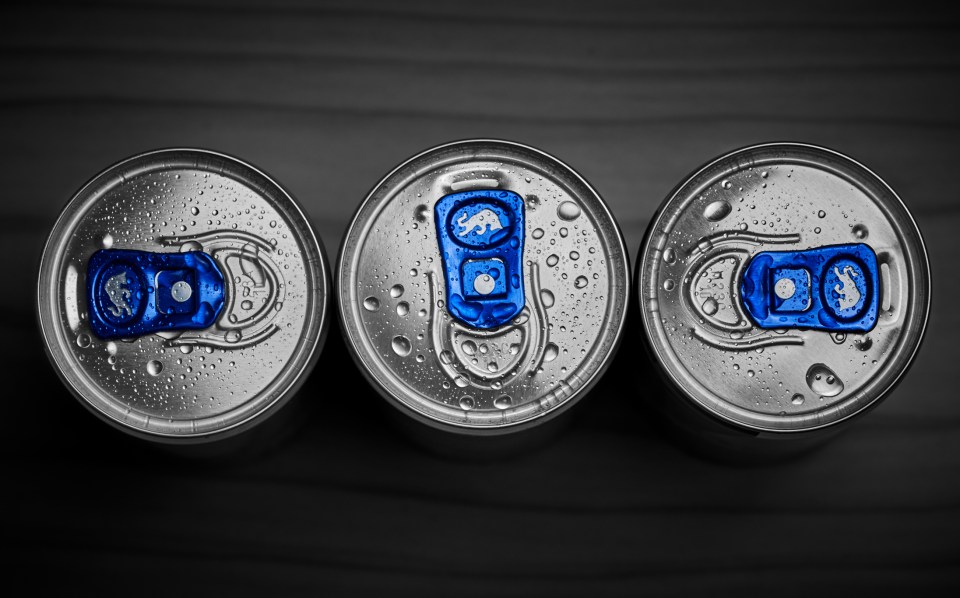The afternoon energy crash—we have all experienced it. As 2 p.m. approaches, the day seems to stall, and after a busy day that is only just more than half-way over, you decide a boost of caffeine is just what you need.
You bypass the coffee and head for an energy drink, pop the top, and wait for the caffeine to revive you and prepare you for the rest of your day. If that sounds like a familiar scenario, make sure you understand the potential risk factors that come with the boost.
A small study published in the Journal of the American Heart Association has found that energy drinks may provide a jolt to your heart and blood pressure up to four hours after consumption.
The study enrolled 34 volunteers between ages 18 and 40, making it the largest controlled study of the effects of energy drinks on the heart and blood pressure in young, healthy adults. Volunteers consumed 32 ounces of two commercially available energy drinks or a placebo in one hour on three separate days. Researchers documented the electrical activity of their hearts, and recorded the time it takes the heart’s lower chambers to prepare to generate a beat again.
For those who consumed an energy drink, the interval was higher at four hours when compared to placebo drinkers. Both numbers in blood pressure rose, as well.
What does it mean?
If the time interval recorded in the study is too long or too short, it can cause a cardiac arrhythmia. From the AHA, the term “arrhythmia” refers to any change from the normal sequence of electrical impulses in your heart, causing the heart to beat too fast, too slow or erratically. This can cause blood to pool in the heart’s upper chambers, and when blood pools, clots can form.
If a clot leaves the heart and reaches the brain, it can cause a stroke. A stroke is a sudden disruption or loss of the normal blood supply to the brain. The effects of a stroke can be slight to very serious, depending on the area and size of the brain that is damaged. No two stroke survivors have the exact same experiences.
Know the risks
In this study, participants consumed 32 ounces of energy drinks in one hour, while a standard single can is 12-16 ounces. Lead author of the study Sachin Shah said more work needs to be done to understand the particular ingredient combination that could have led to the results of this clinical trial. It did demonstrate that a high dose can cause cardiac irregularities. In the meantime, if you have a heart condition or high blood pressure, consider limiting your consumption.
Feeling tired?
Next time you find yourself reaching for an energy drink, consider these alternatives.
Grab some coffee. General guidelines say that 400mg of caffeine per day is considered safe for the average healthy adult—but note that a person’s height, weight and other risk factors can impact its effects. While energy drinks do contain caffeine, many also contain taurine and other ingredients, and the effects of these substances haven’t been extensively studied.
Take a brain break and a stroll. If you’re able, take a brain break and step away from your desk for a quick stroll, some stretching or some light aerobics. Not only will you get your blood flowing and increase alertness, but you can also get some steps in at the same time.
Check your sleep habits. If the last thing you see before you close your eyes at night is a cellphone or tablet screen, you’re likely negatively impacting your sleep. Put the electronics away before bed, and if you must use them, utilize the “night mode” that many offer. Lengthy daytime naps may also be negatively affecting your ability to sleep well at night.
Take a look at your medications. If you’re practicing good sleep hygiene but still struggle with constant fatigue, ask your physician to take a look at your medications for anything that could be causing drowsiness or any interactions that could be leading to your fatigue.
There may be more to your snore. Does your significant other tell you that your snoring keeps them up? You may be experiencing sleep apnea In addition to causing fatigue , it is a risk factor for a stroke. Check up on the signs and symptoms, and ask your doctor for an evaluation.
The content of this site is for informational purposes only and should not be taken as professional medical advice. Always seek the advice of your physician or other qualified healthcare provider with any questions you may have regarding any medical conditions or treatments.



